Have you ever woke up from a deep sleep after having a scary or horror dream? A nightmare is the same thing, having a disturbing dream.10 Reasons Why Nightmares Are Still Haunting You: The context of the nightmare may be different for you. You may not watch a ghost or witch in your dream. Or maybe you are falling from a great height.
A nightmare awakes you from a deep sleep and makes you uncomfortable while you can not return to sleep. Besides this, it feels so real and vivid that you feel a pounding heartbeat.
Having a nightmare can disturb your whole day. It can make you sad, confused, angry, and guilty, and sometimes it can also cause anxiety. Horror and scary dreams are more common in childhood, but you can still have nightmares in your teens and adulthood.
Often, girls are more exposed to horror dreams then boys, and maybe that is why I often have nightmares.
I have a dream which has repeated itself from my childhood to adulthood. In my nightmare, I see that I am falling from different heights, and in my dream, I am terrified of jumping from high buildings, and I thought that maybe I’m going to die.
Despite this, do you know sometimes you are exposing yourself to nightmares? Yeah, You read it right. Your lifestyle and habitual routines might cause you to have horror and scary dreams. Besides your lifestyle, there are some other reasons why nightmares are haunting you still in your adulthood.
Late-Night Snacking
Late-night eating triggers nightmares in you. WHY? When you eat just before bedtime, it increases your metabolism, which asks your brain to be more active. Consequently, your active brain creates stories and figures in your subconscious mind and you see disturbing dreams.
When you eat late-night, you can’t sleep easily because the later you eat, the less your body can sleep. Also, it shows adverse effects on your activity level and memory. Eating late at night will also disturb your sleep cycle, and it is the main reason why nightmares haunt you. In 2015, research was conducted by two Canadian psychologists to know the adverse effects of late-night eating on sleep, and they found out that the students who ate before bedtime were more exposed to horror dreams.
Why did it happen? When you eat late at night, the snacks don’t digest well; that’s why they create a gastric discomfort, which leads to confusing and disturbing dreams.
Medications
If you take any of the psychological or non-psychological medications, you may experience nightmares. These drugs also alter the frequency of nightmares. If you ever bought an antidepressant or SSRI medications, did you noticed a listed side-effect on their warning labels? That is, “It can cause strange or vivid dreams” It is obvious that if they rely on brain chemistry to treat any psychological disease, it should also have some effects on your dreams.
Medications that contribute to disturbing dreams include allergy medicines, blood pressure drugs, and antidepressants. Let’s get into a bit detail why it happens? There are certain chemicals in our brain that affect alertness and moods. These medicines influence neurotransmitters in our brain, which in turn causes nightmares and strange dreams.
So, if you are experiencing nightmares it might be due to the following medicines that you are using Beta Blockers, Statins, Ambien (zolpidem sulfate), SSRIs, Erythromycin and Clarithromycin Antibiotics, Anti-seizure medications, and antihistamines.
Alcohol Consumption
Nightmares might also haunt you if you fall asleep drunk. To understand alcohol consumption’s role in triggering disturbing dreams, let’s dig into a bit of detail. Experts have divided the sleep into two phases, i.e., non-rapid eye movement (non-REM) sleep and rapid eye movement (REM) sleep. When you fell asleep, both these phases alter themselves during the whole night. Most commonly, the beginning phase is non-REM, and dreams develop in the REM phase.
In this context, alcohol reduces REM sleep. Alcohol in your blood influences the brain function, and it prevents your brain from dreaming. Once the alcohol is fully metabolized, it causes REM rebound, i.e., your mind spends a large amount of time in REM sleep. This REM rebound causes nightmares. Besides higher alcohol consumption, a sudden withdrawal from alcohol and recreational drugs also leads to disturbing nightmares. Medicines that are used to treat alcohol addiction also play a part in creating vivid dreams.
Sleep Deprivation
Not getting enough sleep? You are inviting nightmares yourself. Sleep deprivation is when you are having a sleep less than seven to eight hours at night. Having less sleep can cause many health troubles, including vivid dreams. Studies have shown that people with sleep deprivation are more likely to see nightmares. Vivid dreams are accompanied by additional loose of sleep. Double the loss!
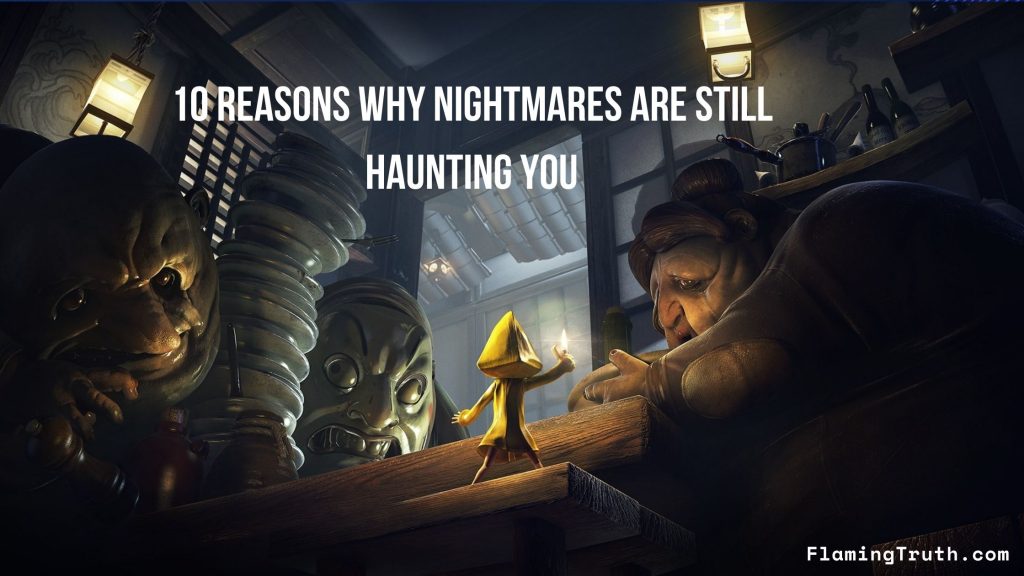
Besides, less sleeping, irregular sleeping patterns, and waking up so often trigger nightmares because they disturb your REM sleep. If you don’t pay attention to your sleeping pattern and don’t start getting enough sleep, there are many chances that you may develop nightmares disorder. Insomnia, on the other hand also contribute to disturbing dreams.
Sleep Disorders
You are more likely to have horrors if you have certain sleep disorders like sleep apnea and restless leg syndrome. Sleep disorders alter your sleeping ways. A shortage of oxygen during sleep triggers nightmares. In sleep apnea, your breathing starts and stops repeatedly that disturbs your REM sleep, and consequently, you experience strange dreams. When apneic episodes take place during dreaming, it interrupts your sleep pattern and leads to dream recall. There is a sudden drop of oxygen during an apnea, which gives rise to nightmares as it changes the dream context.
If you feel an itching and burning feeling inside your legs that make it difficult for you to sleep, you might be suffering from restless legs syndrome. Due to restless leg syndrome, your sleeping span reduces, and it majorly affects your dreaming process. And when you fell asleep again, you are more prone to nightmares.
Restless leg syndrome interrupts the normal dreaming process, and when it recalls the dream, the dream context changes, and you experience strange, vivid dreams.
Anxiety and Stress
If you take a lot of stress, there are high-risk factors that nightmares will haunt you. Stress can be as little as fear of punishment, exams, finals, the incompleteness of assignments, a difficult task at work or home to more significant issues like the death of a loved one, or divorce can trigger vivid dreams in you. Stress and anxiety affect the quality and span of your sleep, which, in turn, develops nightmares. You may have experienced anxiety regarding performance in your dreams. According to a study conducted to know the frequency of nightmares in athletes before a competition, states that 15% of the athletes experienced a disturbing dream before any important match or game.
Like most students, you might experience nightmares regarding exams and failure, even if you passed out of school many years ago.
Family History
Nightmares run-in family. If you are encountering bad dreams, it might be in your genes. Some psychological and genetic factors trigger vivid dreams. There is a possibility that nightmares haunt your mother also including your brother or sister. Approximately 7% of individuals who experience disturbing dreams have a family history in nightmares.
Trauma
You are more prone to nightmares after a traumatic event like sexual or physical abuse, surviving natural disasters, relationship violence, injury, or accident. These traumatic experiences are linked with frequent or recurring bad dreams. Nightmares are more likely to haunt you if you have post-traumatic stress disorder (PTSD).
According to researches, 52-96% of people who have PTSD experience strange dreams. National Center For PTSD says that nightmares of these person often consist of a replay of the event and similar plots or elements. So if you have started experiencing nightmares suddenly, it may be due to any trauma or PTSD.
Scary Movies and Books
Watching horror movies or reading scary books just before bed increases the possibility of nightmares. Some people say that these are anecdotal and do not have any fact in them. But most of you have experienced a bad dream after watching a horror movie or a suspenseful, thrilling show. Even fear-inducing news shows have the same effect. These scary movies and fiction characters come up in our dreams most of the time, causing us to wake up. Horror stuff may also trigger stress and anxiety in you, which is the first stage of nightmare development.
According to an older study, 90% of the participants can still remember any scary movie, show, or incident. And half of them stated that they experienced nightmares regarding that frightening stuff.
Depression
Depression is the root cause of many medical and psychological disorders. It affects your brain and interrupts in its normal functioning. There is a strong connection between nightmares and depression. According to a study, 28.4% of the participants suffering from depression are also suffering from frequent and repetitive nightmares.
Read More: “Insomnia- A Sleep Disorder“
Severe depression is a root cause of nightmares. A negative self attitude accompanied by depression leads to the onset of horror and disturbing dreams. Recently a research was conducted to examine the relationship between depression and nightmares. And the result findings say that 55% of the participants experienced nightmares. Antidepressant drugs also induce vivid dreams. Also, psychosis is another risk factor that contributes to scary dreams.

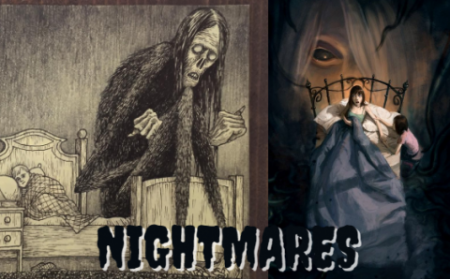

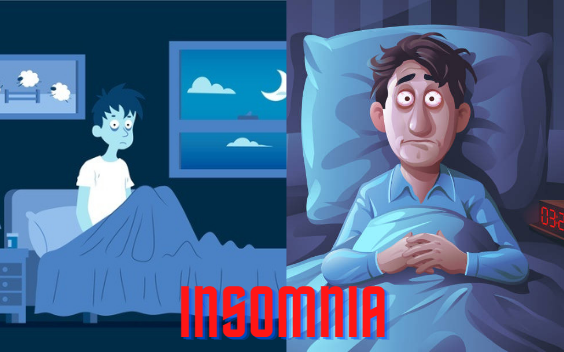
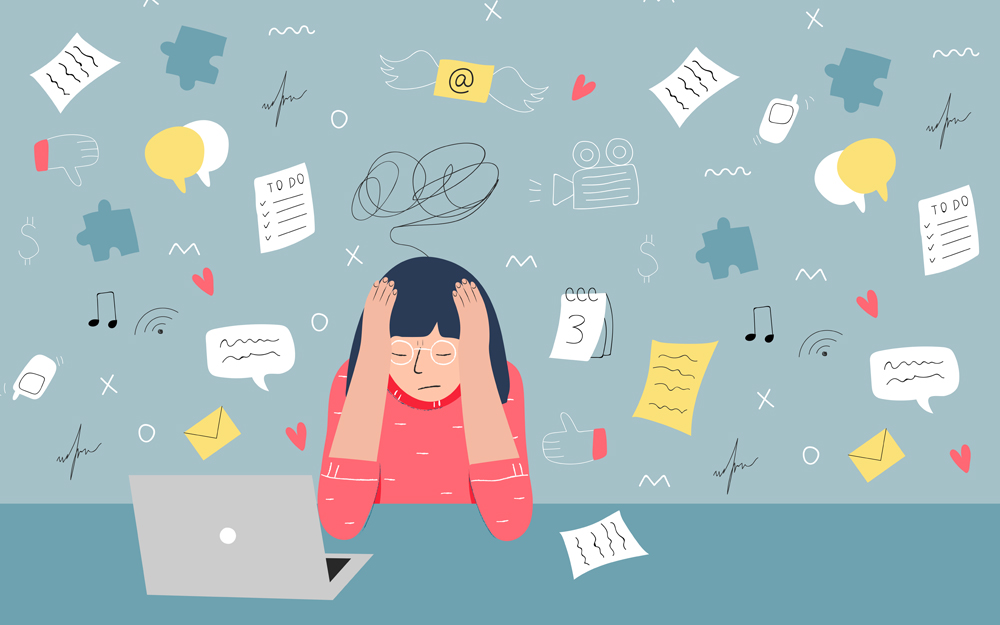
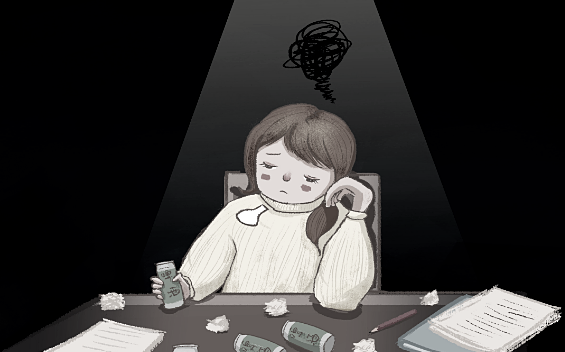









0 Comments